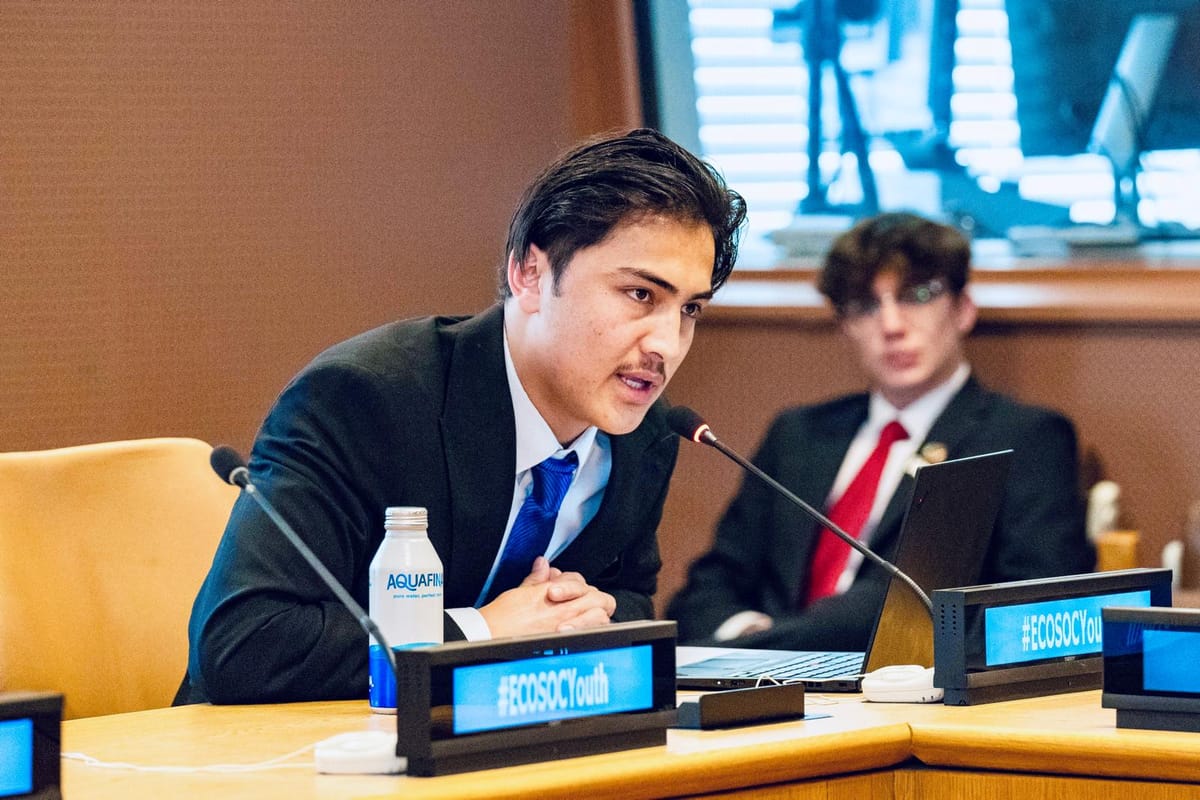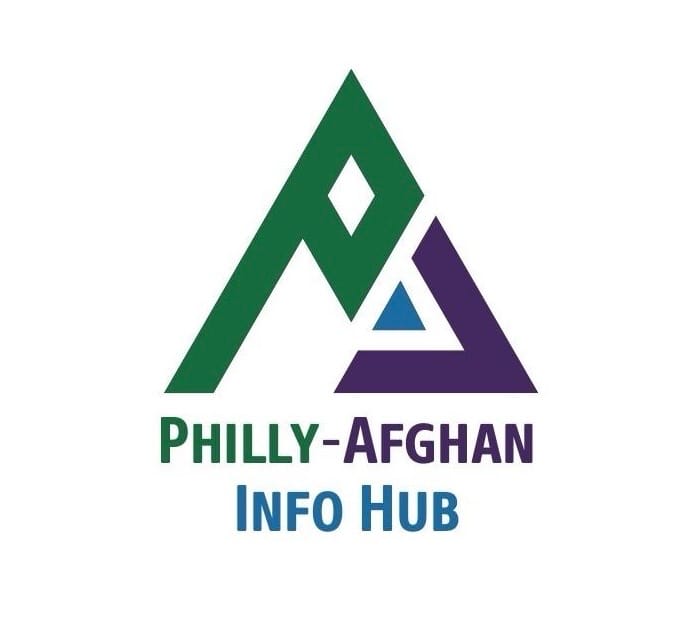Finding a Way: How Two Afghan Refugees Navigated Higher Education in Philadelphia
Afghan newcomers face a maze of language barriers, tuition costs, and complex financial aid systems—but with the right information and support, higher education is within reach. Samiullah Fateh and Shabnam Nawazi share their journeys of resilience, learning, and empowerment in Philadelphia.

Author: Zainab Naseri
This article is part of a series of stories created by members of the Afghan community, written both about and for the community. The authors received training in writing, interviewing, and photography from the Philly-Afghan Info Hub and developed this project over six weeks. The series was edited by Tahera Rahmani. You can read the full collection of stories here.
In the chaos of Kabul airport in August 2021, Samiullah Fateh was one of thousands running for their lives, desperate for any route to safety. Amid the terror and confusion, he managed to board a U.S. military evacuation flight—without any idea where it would take him.
“On the plane, there were so many rumors. No one really knew our destination. I wasn’t prepared, mentally or emotionally, for America. I just knew I had to escape a place where there was no hope left.”
After a brief stop in Germany, Samiullah arrived in the U.S. and eventually settled in Philadelphia, Pennsylvania. He spoke limited English, but quickly realized that language was the gateway to education, employment, and independence. With support from a local nonprofit, he enrolled in English as a Second Language (ESL) classes and later joined a GED program.
“I didn’t have a complete formal education before. But here I learned that with intensive programs, I could keep studying and move forward.”
As his English and confidence improved, Samiullah began to seriously consider college. But tuition costs were staggering: Temple University charged about $40,000 per year for out-of-state students. With guidance, he learned that waiting one year would make him eligible for in-state tuition—cutting the cost to around $19,000. He also secured a $5,000 scholarship.
“I learned that patience and the right information are really important when making education decisions. You just have to know what options exist.”
To cover the rest, Samiullah applied for a federal student loan. Though he initially feared the process, he found that having a Social Security number and a driver’s license was enough to get started. Still, he approached the process with caution.
“At first I was really scared. I thought it would be so hard and confusing. But once I did it, I realized it wasn’t hard at all.”
Financial aid and student loans can be complex, and not all options are advisable. Experts often encourage students to speak with college financial aid officers or use resources like Federal Student Aid to learn about interest rates, repayment plans, and how much to borrow responsibly. Some nonprofits, such as the National College Attainment Network, offer multilingual resources for immigrant and refugee families.
Today, Samiullah is both a student at Temple University and the founder of a nonprofit (Afghanistan Youth Network for Peace) that supports Afghan youth—especially girls denied education in Afghanistan.
“This organization was like a dream for me. I want to be a window of hope for girls who feel like they have no options left.”
Navigating Education as a Refugee: Shabnam Nawazi’s Story
Shabnam Nawazi, another Afghan newcomer, is currently studying General Business in Philadelphia. Her journey—marked by confusion, perseverance, and self-advocacy—mirrors the path of many refugee students.
When she arrived in the U.S., Shabnam began studying accounting in 2023. But she soon realized how complicated the financial aid system could be. After relocating to Philadelphia with the help of a resettlement agency and her case manager, she restarted her academic journey in a new city.
She spent months researching the U.S. higher education system—reading school websites, watching videos, and talking to current students. She learned that Afghan humanitarian parolees and refugees, though not citizens, could qualify for in-state tuition in Pennsylvania with just a Social Security number and a proof of residency.
“One of the turning points was realizing that, despite our immigration status, we could qualify for local tuition rates and aid with just the right documents. That changed everything.”
Still, tuition was a heavy burden. Shabnam made careful budgeting choices, explored grants, and avoided private loans with high interest rates. She also took part-time jobs to support herself while studying.
“If I could go back and start over, I might have chosen biology as a major, so I could have finished sooner and gotten on a clearer career path. Community colleges here are a really good option—they’re more affordable and offer so many resources.”
Shabnam now balances school and work while helping other Afghan women navigate education and employment through a grassroots community initiative. She’s proof that knowledge, persistence, and peer support can help newcomers shape their futures.
Practical Advice for Afghan Refugees Seeking Higher Education
Samiullah and Shabnam shared several lessons that might help others in similar situations:
- Take English classes seriously. They are the foundation for education, employment, and daily life.
- Seek out trusted resources. Though many resettlement agencies have lost funding, organizations like HIAS Pennsylvania, Nationalities Service Center, and Welcoming Center for New Pennsylvanians still provide some support. Local libraries and community colleges often have multilingual staff and immigrant advisors.
- Learn about financial aid early. Most colleges follow the FAFSA (Free Application for Federal Student Aid) timeline, which opens on December 1, for the 2025 - 2026. You’ll need a Social Security number and sometimes income documentation.
- Be careful with student loans. Not all loans are equal. Stick to federal loans when possible—they tend to offer lower interest rates and better repayment options. Use sites like studentaid.gov to learn more, and avoid borrowing more than you reasonably expect to repay.
- Expect setbacks—and don’t be afraid to ask for help. The system can be confusing, but you are not alone. Ask current students, professors, or counselors for support.
- Consider community colleges. These schools often offer transfer pathways to four-year universities, lower tuition, and accessible support services.
Additional Resources
The following resources may be helpful for anyone looking for support with English classes, financial aid, or understanding FAFSA and in-state tuition eligibility:
- PAsmart offers information on different education opportunities and how to pay for them:
https://www.pasmart.pa.gov/explore-education/
- They also have information on training and apprenticeship programs:
https://www.pasmart.pa.gov/find-training-apprenticeships/
- The Pennsylvania Higher Education Assistance Agency offers a college planner to help you think through options for types of schools and how to pay for them:
- Universities may also be able to help you find scholarship opportunities such as this Soros Fellows scholarship for New Americans:
- The City of Philadelphia works with community organization partners to offer adult education for residents who are 16 years of age and older. They offer classes including:
- English for speakers of other languages (ESOL).
- High school equivalency preparation, including GED and HiSET preparation.
- Basic computer skills.
- Reading, writing, and math.
You can contact the following number to learn more about classes and enroll. It is best to call between 8:00 a.m. and 4:30 p.m., when a Career Navigator can answer. Live translation is available for the call. During other times, you can leave a voicemail.
Phone number: (833) 750-5627
